If you were to examine your trash, you’d likely see that food packaging makes up a large proportion of what you throw out. Packaging waste takes up a huge amount of space in our kitchen bins and, ultimately, in landfills. It is often made from plastic, which is wasteful to produce, and even though it’s technically recyclable, can often only be downcycled. Some also believe plastic packaging may be harmful to health, due to the chemicals it can contain.
Buying in bulk is a fantastic way to use less plastic and reduce packaging waste, which cuts down what we accumulate and throw away in the kitchen. Making the switch can seem daunting at first – modern packaging is designed for convenience, and most of us have formed habits around using it. Package-free shopping, though, is a habit that can be formed quickly. Here’s how to become a more planet-friendly shopper.
Tips to reduce packaging waste
Invest in reusable shopping bags
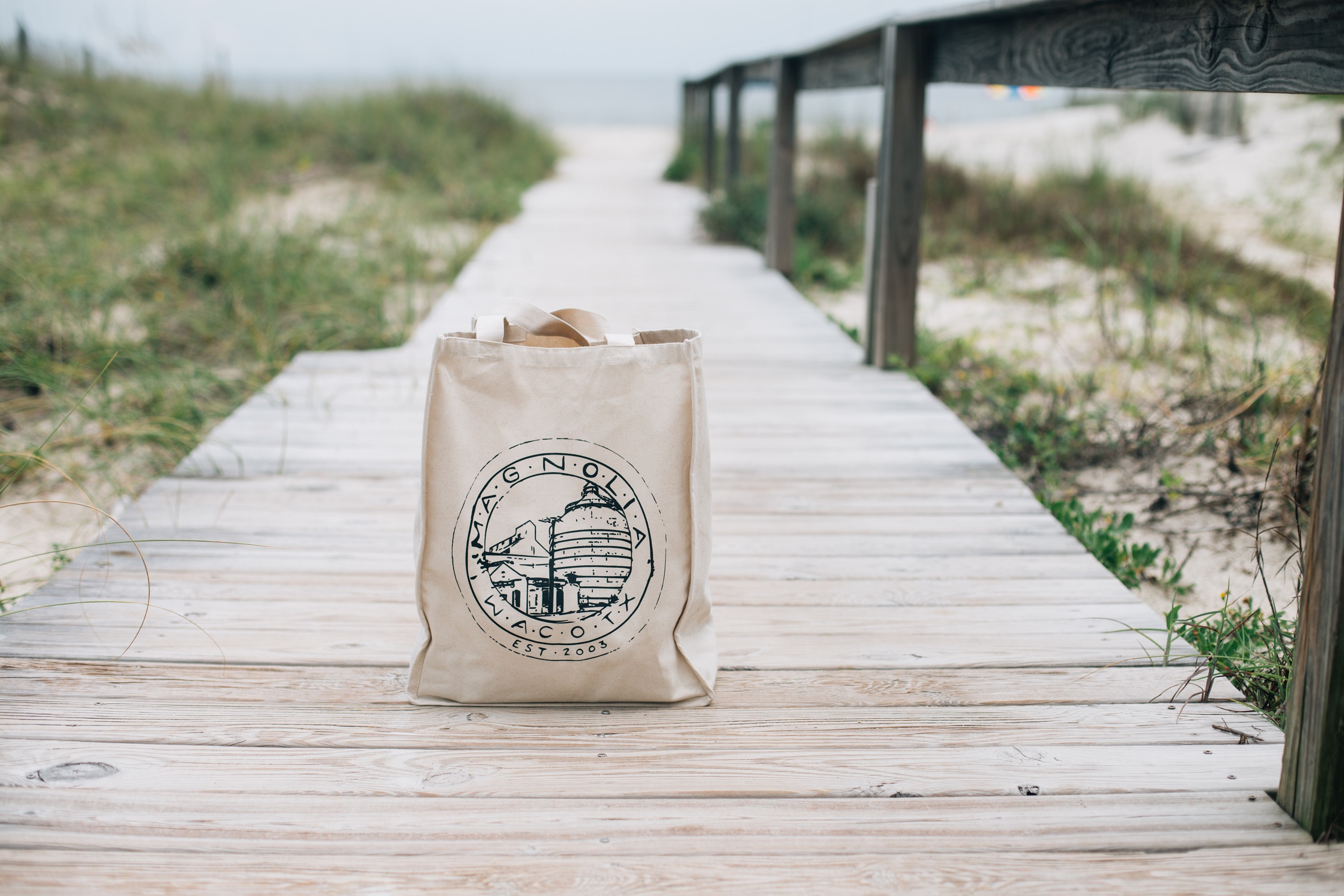
This is step one of reducing your shopping waste. Bringing reusable bags with you means you don’t use environmentally harmful plastic bags, which end up on beaches, or sit in landfills for hundreds of years. Depending on which type of reusable bag you choose, reusing it just 5 times could save energy and resources compared to using disposable bags.
When choosing a bag, consider the size and material that will best suit your shopping – would a mesh bag work? Or do you buy items that would fall through the holes? Cotton bags are a popular choice and are washable and biodegradable, while hemp bags are very strong and durable. Also consider that some reusable bags are made from non-biodegradable plastic, and will eventually become waste.
Check out this guide to choosing a reusable bag, or even make your own out of an old pillowcase or tank top. If you need convincing on why to bring a bag when you shop, here are 25 reasons.
Shop with your own containers and produce bags at a bulk store
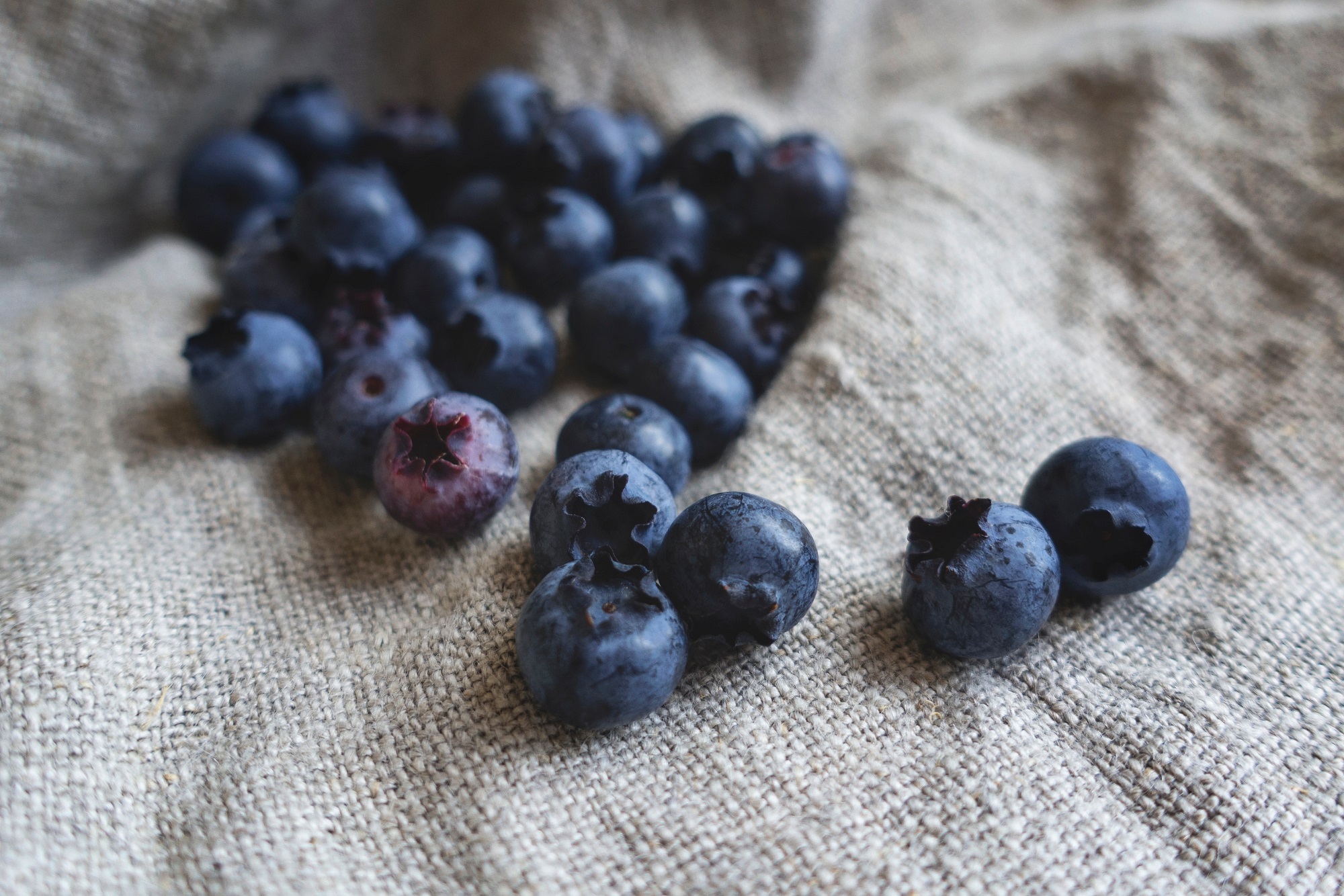
Using your own containers to buy in bulk is increasingly easy. At bulk stores and some regular grocery stores, you can pay for your goods by weight by first removing the weight of your containers from the price. This process is known as taring.
Zero waste stores with an eco-conscious supply chain are one of the least wasteful ways to shop. Bulk Barn is Canada’s largest bulk buy chain and an early adopter of the taring process. There are more bulk stores around than ever – there’s Nada in Vancouver, The Tare Shop in Halifax (opening soon), NU Grocery in Ottawa, and Mega Vrac in Montreal. Initiatives such as Chilliwack’s The Refillery are also sprouting up – be sure to have a look for one in your area. Here’s a list of stores where you can bring your own containers to do low impact grocery shopping across Canada.
Bring appropriate containers for the food you want to buy (a shopping list will help). Jars are great for bulk items while bread, fruit and vegetables can be put into cloth bags. You can also use mesh bags like these which you don’t need to tare because they’re just as light as standard plastic ones.
Reduce your food waste with meal planning
According to a WRAP study into landfill waste in Canada, more greenhouse gases are created from food wasted by households than by plastic packaging. An average Canadian throws out 170kg of food every year – but there are several things you can do to cut down on your household food waste.
Meal planning may take a while to get used to, but once you’ve done it a few times it will seem natural and easy. The Kitchn suggests starting with simple recipes, and letting yourself take the time to search for them each week. This makes it fun and relaxing, means you won’t be overwhelmed by new ingredients and methods, and you’ll start to build up a repertoire of recipes to take inspiration from again and again.
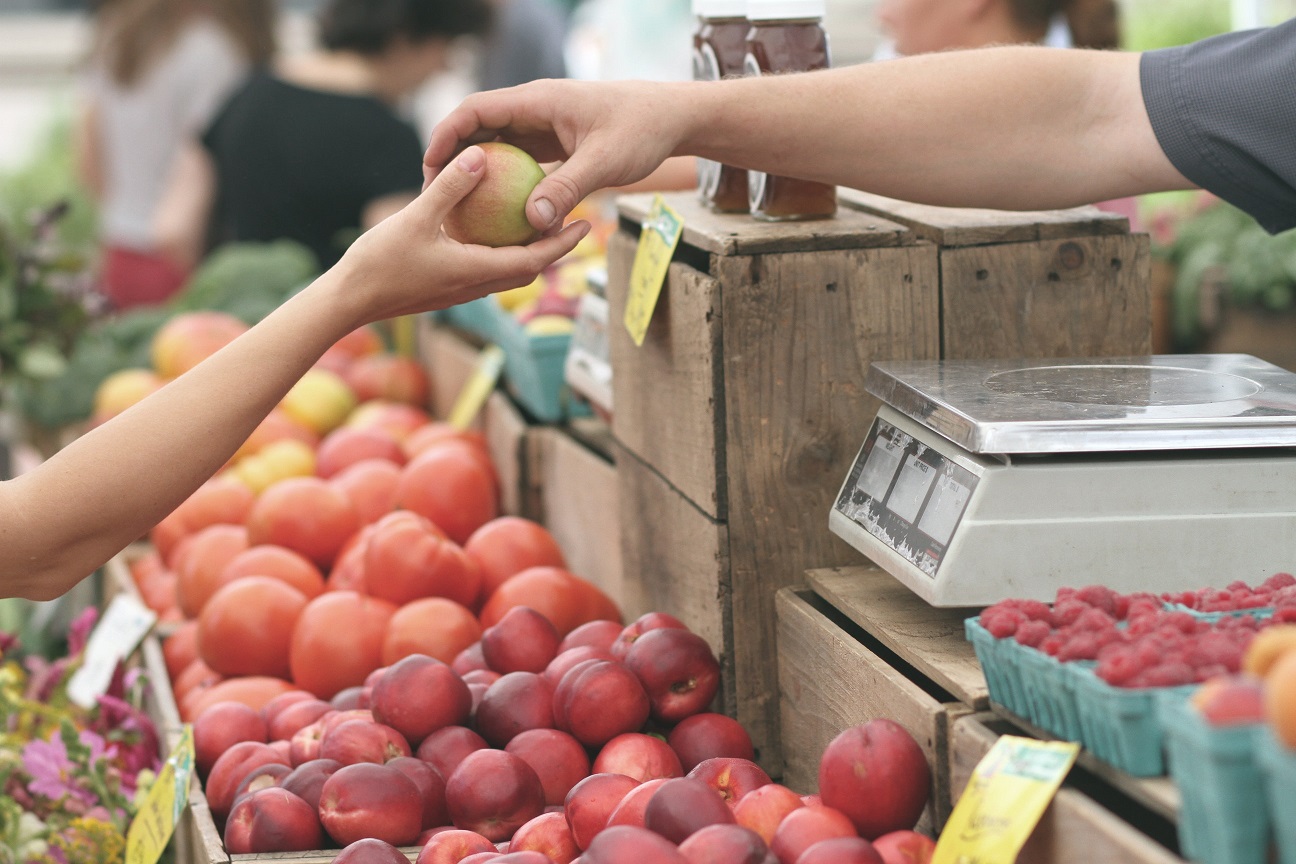 Shopping at a farmer’s market, if you have one nearby, often allows you to buy exactly what you need while reducing packaging waste and your carbon footprint. The food there is often local and unpackaged. You may also feel more connected to the producers of the food you’re buying, meaning there’s more incentive not to waste it. Check out these tips for shopping zero waste at a farmer’s market.
Shopping at a farmer’s market, if you have one nearby, often allows you to buy exactly what you need while reducing packaging waste and your carbon footprint. The food there is often local and unpackaged. You may also feel more connected to the producers of the food you’re buying, meaning there’s more incentive not to waste it. Check out these tips for shopping zero waste at a farmer’s market.
Buying in bulk is also effective for reducing food waste because you can buy the exact amount of an ingredient you need for any recipes you’re planning. If you don’t have a bulk store nearby, check out this excellent guide on how to shop zero waste at Walmart.
Put together a zero waste shopping kit
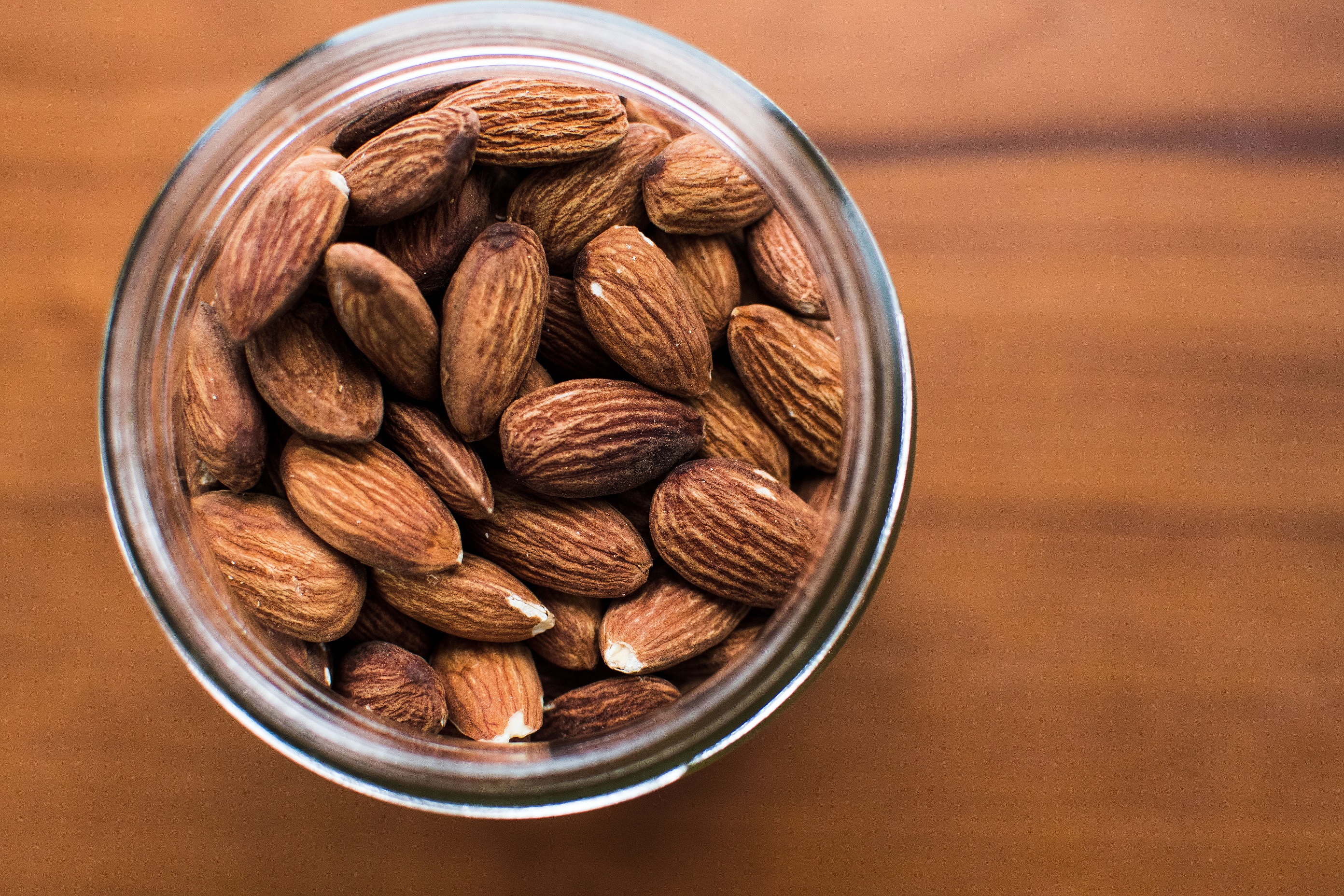 This will save you a lot of time! Here’s a checklist of what to bring with you when you shop:
This will save you a lot of time! Here’s a checklist of what to bring with you when you shop:
- Reusable shopping bags
- Cloth bags / produce bags for fresh food
- Jars or glass containers for bulk items
- Sharpie to mark the PLUs of bulk items and record tare weight of your containers
Storing these items together means you can easily grab them before heading to the shops.
Do you have any tips for reducing packaging waste? Share them with us on Facebook, Twitter or Instagram! For more zero waste inspiration, read the top zero waste tips from our office.
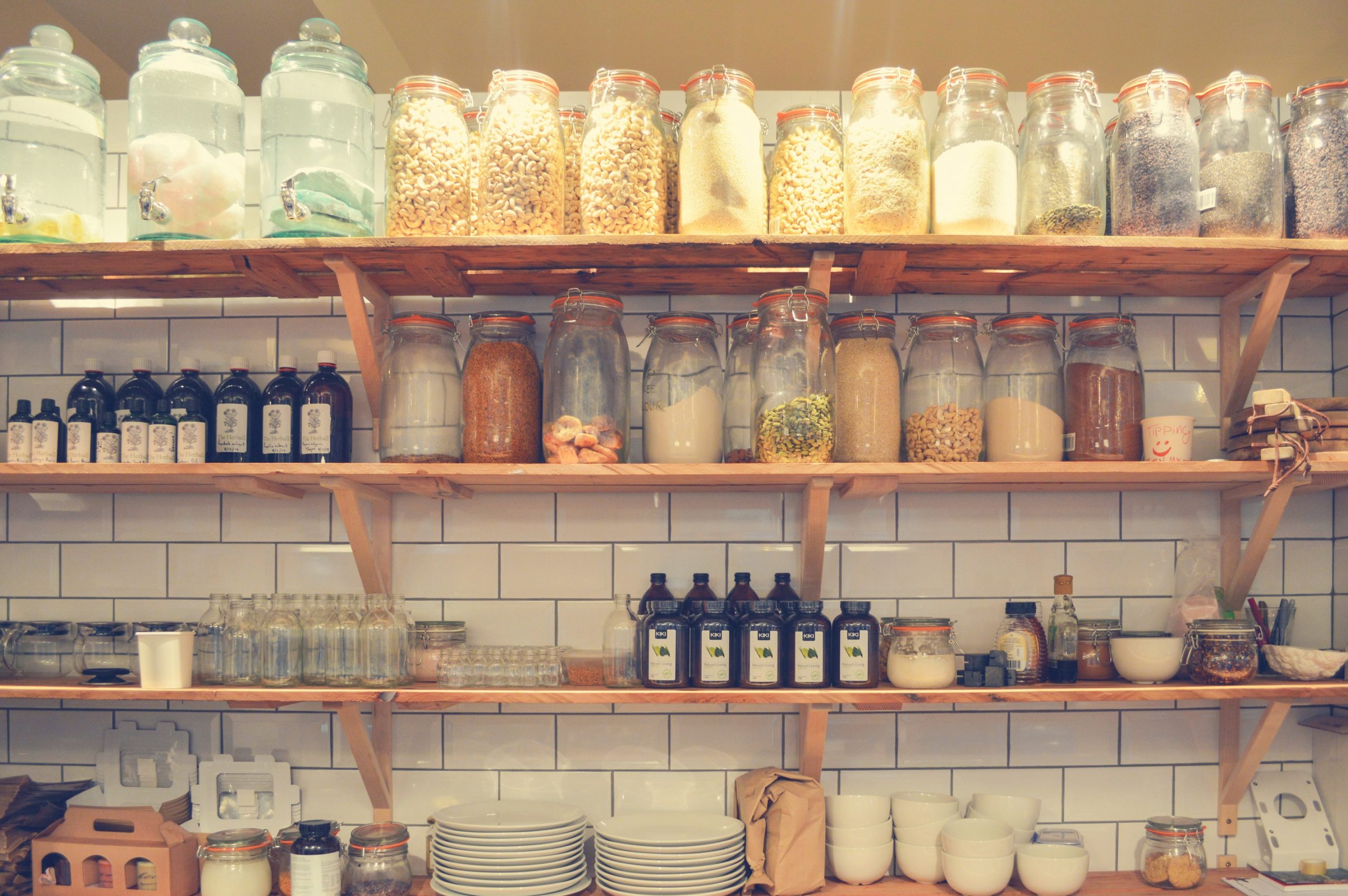
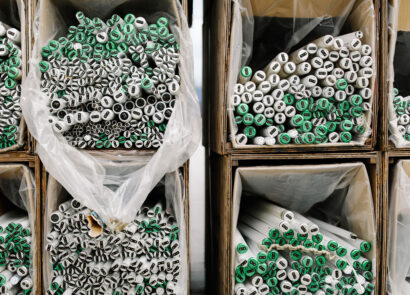


Comments